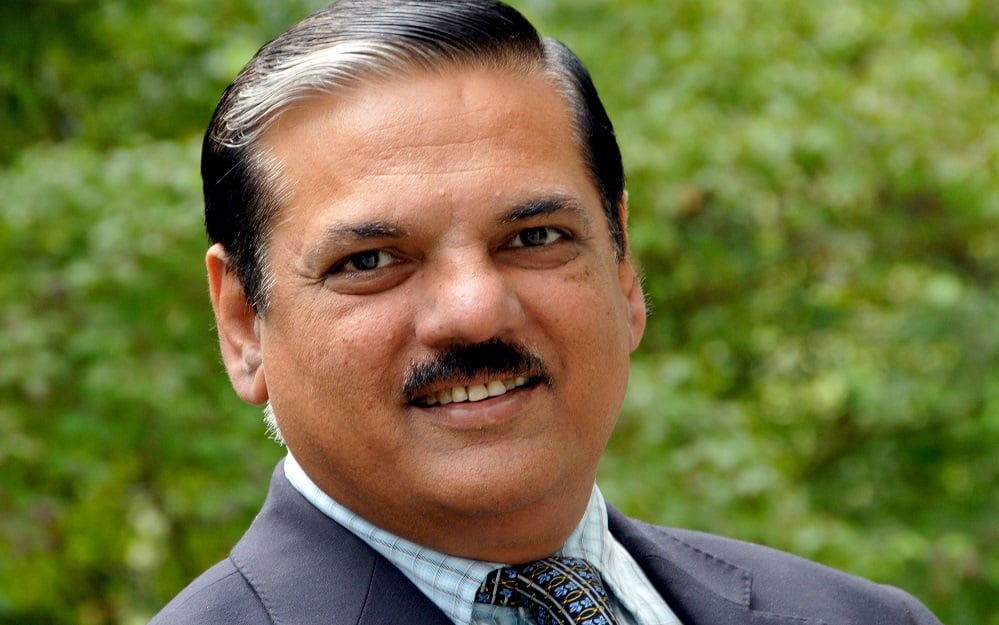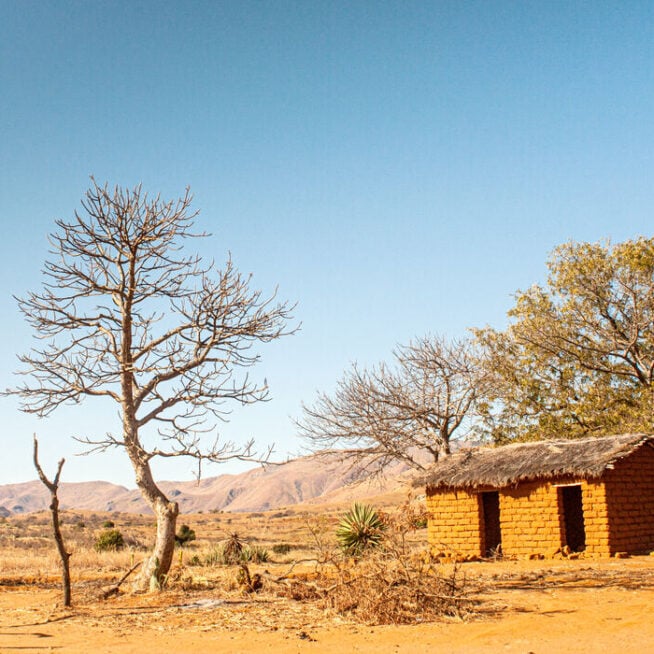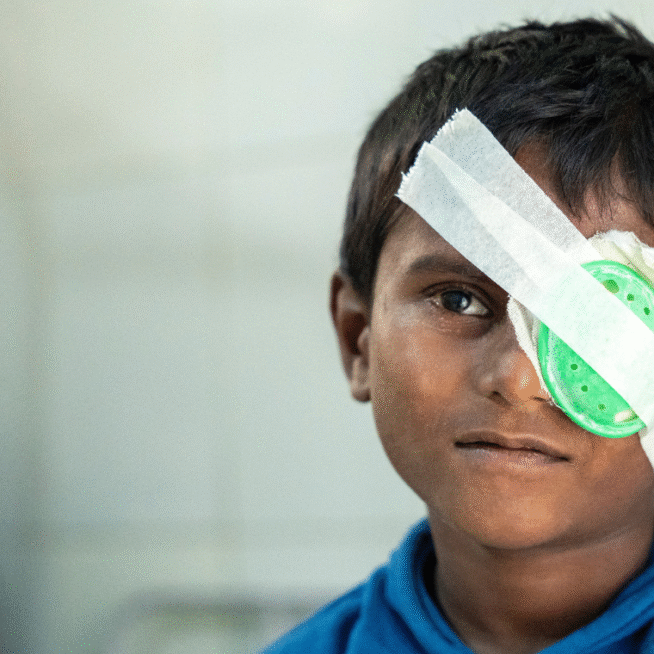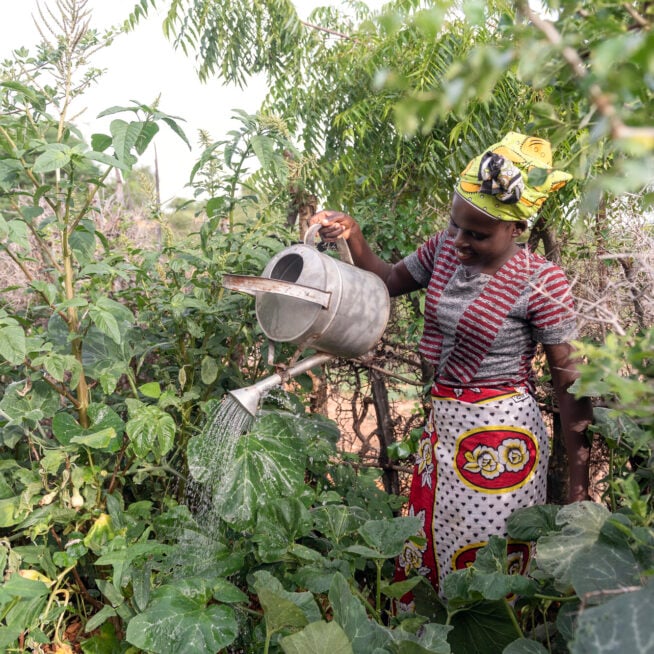Want to transform lives with us? Stay in touch and hear about our news, activities and appeals by email!
Dr Babar Qureshi: taking on new challenges in eye care [21 Stories]

After working as an eye specialist in Nigeria and Pakistan, Dr Babar Qureshi joined CBM in 1997. He is now CBM’s International Director for Inclusive Eye Health. From bringing about an eye health revolution in Pakistan to tackling emerging challenges such as diabetic retinopathy, Dr Qureshi sets out CBM’s blueprint for building quality, affordable eye health services for all.

An opportunity to change lives
“It was in my third year of medical school in Nigeria. I was spending my summer holidays taking blood samples from people living along fast flowing rivers for research into the fly that causes onchocerciasis, (River Blindness). That is when it struck me, that in village after village, I was seeing blind adults, one after the other. I came back and decided that I was going to be an ophthalmologist.
A teacher and mentor,Dr Pararajasaegram of mine used to say, if you have the knowledge and the power to cure and treat, and if you don’t do anything, then you are responsible not only for the things you do but the things that you don’t.
After 13 years of treating patients, I had started to think that however many individuals I was reaching, it never seemed enough. This is why I decided to start working in academic research and programme development for CBM. This allows me to improve access to treatment and make a major and lasting difference.
Finding a model that works
My first assignment began in Pakistan in 1997, when CBM started a regional institute in community ophthalmology.
I then got involved in the setting up of a comprehensive eye care programme for the whole country. We began with a pilot study in a district hospital which performed 150 cataract surgeries annually. After training staff and supplying better equipment, that number increased to 1,000 annually.
CBM replicated that in 10 more districts and we saw the same brilliant results.
Other NGO’s came in, and the government said if it’s that good we’ll pay for it to be rolled out in the remaining districts.
Eye care in Pakistan was revolutionised. Bringing in this system meant the district hospitals were now able to meet the needs of 80% of the community, and the city based tertiary hospitals, which had been bursting at the seams with patients, could get on with their primary tasks of teaching, training and specialised care. If you visit any district in Pakistan today, you will find state of the art equipment, very well qualified staff and top class services.
Recognising the challenges ahead
Since then many things have changed in Pakistan and worldwide. The population has grown and the population has aged. Techniques are much better, and awareness is greater. Previously, people would visit the hospital when they were almost, or already blind. Now, people come much sooner for surgery because they know it is treatable.
Our focus on cataracts will continue. We address this in a comprehensive manner, not just providing surgery but promoting eye health, influencing and developing policy to prevent eye disease and for those who are blind or have low vision, we offer rehabilitation.
Uncorrected refractive error, both in children, adults and the elderly, remains a major concern and needs to be addressed urgently. This and the changing patterns of diseases means we face an uphill task over the next 20 years. While cataracts have been relatively straightforward to treat, we are now dealing with diabetic retinopathy, a devastating complication of diabetes.
If we don’t tackle diabetic retinopathy, with the worldwide increase in the prevalence of diabetes, we’ll see a large number of people going blind at working age.
Another key priority for us now is to eliminate blinding Neglected Tropical Diseases, like trachoma and onchocerciasis. It’s not the diseases which are neglected, but the people.
Building affordable quality care for all
Access is still the biggest challenge, and then the cost of treatments. Poverty is continuously increasing so there is no way many people can pay for treatment.To help the poorest blind people we must take the service to their doorsteps, and it must be of high quality.
With CBM there is no such thing as good surgery being available only to those who can afford it.
We are all human beings and we all deserve access to the same support and services.
I will not have an operating theatre in my jurisdiction where I or my family wouldn’t have surgery. My father had surgery in a CBM operating theatre in a van. This was around ten years ago and I am proud of this to this day. This is the kind of benchmark we need to keep to.
CBM’s plans now, and for the future
CBM’s work in Pakistan and our priorities for the future have become a template for a lot of other countries. We believe in delivering comprehensive eye care, and we want our services to be inclusive. This involves looking after all those with disabilities as well as other marginalised groups. The strengthening of health systems is vital. We want to leave behind sustainable services in the health sector so that the public sector takes charge of their own health and services.“
This is one of the 21 Stories. Read more stories celebrating those who have shaped our work




